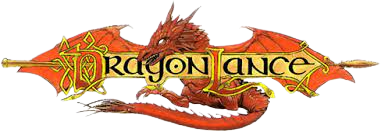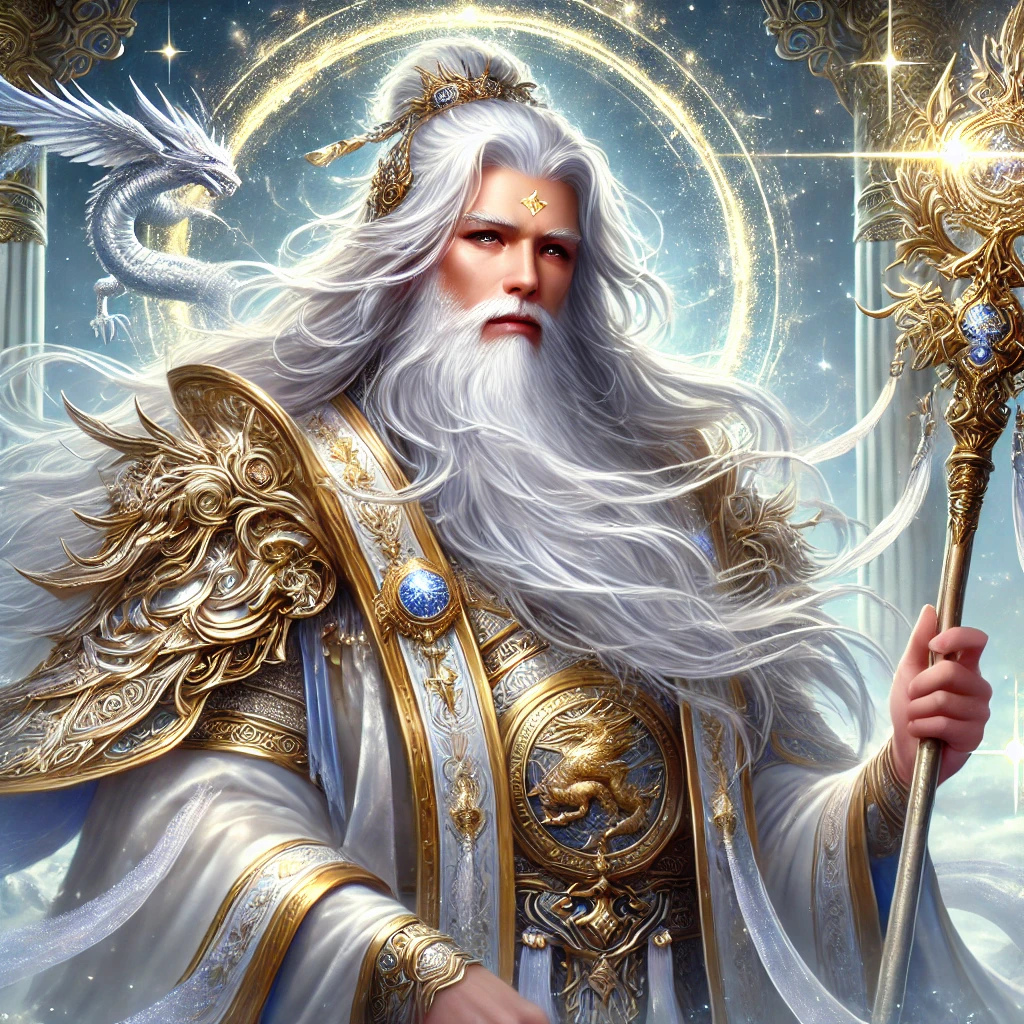Paladine, the Platinum Dragon
Table of Contents
ToggleIntroduction
In the world of Dragonlance, where the struggle between light and darkness shapes the fate of Krynn, Paladine stands as the beacon of righteousness, leadership, and divine justice. Known as the Platinum Dragon, the Great Protector, and the Supreme God of Good, Paladine is the chief deity of the Gods of Light, embodying law, wisdom, and mercy.
Unlike gods who rule through power or deception, Paladine leads by example, inspiring mortals and gods alike to uphold honor, truth, and selfless duty. He is the patron of kings, knights, and those who dedicate their lives to defending justice and protecting the innocent.
Origins and Role Among the Gods
Paladine was created by the High God to act as the champion of good and order, standing in direct opposition to Takhisis, the Queen of Darkness. While Takhisis seeks to conquer and corrupt, Paladine strives to guide, protect, and uplift.
He is the father of Kiri-Jolith, the god of honorable battle, and Habbakuk, the god of nature and life, forming a divine family dedicated to justice, wisdom, and balance. Paladine is not a war god, nor does he demand blind obedience—he teaches that true strength comes from wisdom, compassion, and the courage to stand against evil.
Domains and Influence
Paladine is the god of:
- Honor and Justice – Upholding truth, righteousness, and moral leadership.
- Wisdom and Enlightenment – Guiding mortals toward truth and virtue.
- Protection and Guardianship – Shielding the innocent from darkness.
- Law and Order – Promoting structured leadership and noble responsibility.
His influence is strongest among knights, rulers, scholars, and all who seek to uphold goodness in the world.
Paladine’s Followers and Their Ways
Paladine’s faithful are bound by duty, honor, and selflessness, believing that power is meant to serve, not to rule. They do not seek glory for themselves—instead, they dedicate their lives to protecting the weak, ensuring justice, and guiding others toward wisdom and enlightenment.
His followers include:
- Knights of Solamnia – The noble warriors who follow his Code of Honor.
- Righteous Kings and Leaders – Those who rule with justice and mercy.
- Clerics and Paladins – Defenders of the innocent and seekers of divine truth.
- Scholars and Teachers – Those who spread knowledge and wisdom in his name.
To serve Paladine is to commit to a life of duty, virtue, and unwavering resolve against darkness.
Symbols and Worship
Paladine is often depicted as a majestic, silver-haired king in shining white robes, radiating an aura of peace and wisdom. Among his most devoted followers, he is revered as a colossal platinum dragon, his wings stretching across the heavens, ever-watchful and ever-protecting.
His sacred symbols include:
- A platinum dragon – Representing his divine protection and wisdom.
- A radiant crown – A sign of righteous leadership and justice.
- A sword and scales – Symbolizing law, truth, and the balance of power with responsibility.
Temples to Paladine are grand, awe-inspiring sanctuaries, often built in high places, with shining spires and halls filled with golden light. His followers pray at dawn, seeking his wisdom to guide their actions throughout the day.
Worship and Rituals
Paladine’s worship is rooted in devotion, discipline, and service. His followers do not seek power for themselves—they seek to use their strength to uplift others.
Key rituals include:
- The Oath of Honor – A sacred vow taken by knights, rulers, and clerics to uphold justice and virtue.
- The Dawn Prayer – A daily act of devotion, asking for Paladine’s wisdom and guidance.
- The Vigil of the Guardian – A night-long meditation, performed before great battles or life-altering decisions.
Paladine does not demand sacrifices of gold or blood—he asks only for devotion, wisdom, and the will to protect those who cannot protect themselves.
Allies and Rivals Among the Gods
As the leader of the Gods of Good, Paladine stands closest to:
- Mishakal, the goddess of healing, whose compassion balances his sense of duty.
- Kiri-Jolith, his son and god of honor, who fights to defend the weak.
- Majere, the god of wisdom, who provides insight and guidance.
However, he opposes with unwavering resolve:
- Takhisis, the Queen of Darkness, his eternal enemy, whose ambition threatens all of Krynn.
- Hiddukel, the god of greed, whose deceit and corruption destroy all that is just.
- Morgion, the god of disease, who seeks to unravel the order Paladine upholds.
Paladine’s greatest battle is against Takhisis, for she is his opposite in all things, seeking dominion where he seeks balance, and cruelty where he seeks justice.
Paladine in Legends and Stories
The Fall of the Platinum Dragon
One of the most famous tales of Paladine tells of his choice to walk among mortals. During the War of Souls, Paladine sacrificed his godhood to become the mortal Valthonis, choosing to live among the people he had long protected. Though no longer a god, his spirit remains a guiding force, proving that true divinity lies not in power, but in the wisdom to use it for the greater good.
The First Knight
Another story speaks of the first Knight of Solamnia, who, on the eve of battle, was visited by a majestic platinum dragon. The dragon spoke: “Your strength is not in your sword, but in the honor with which you wield it.”
From that day forward, the Knights of Solamnia swore to follow Paladine’s Code of Honor, vowing never to use their strength for selfish gain.

